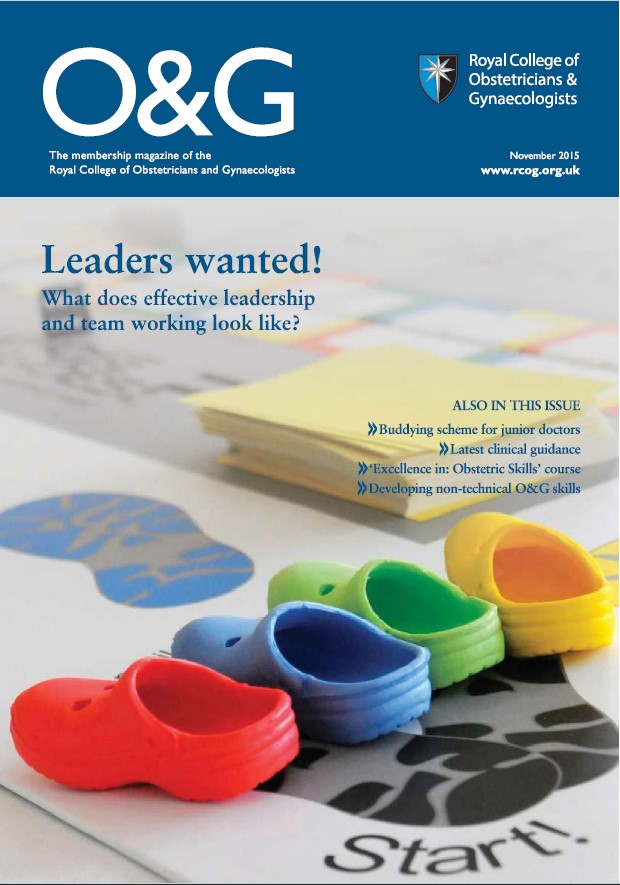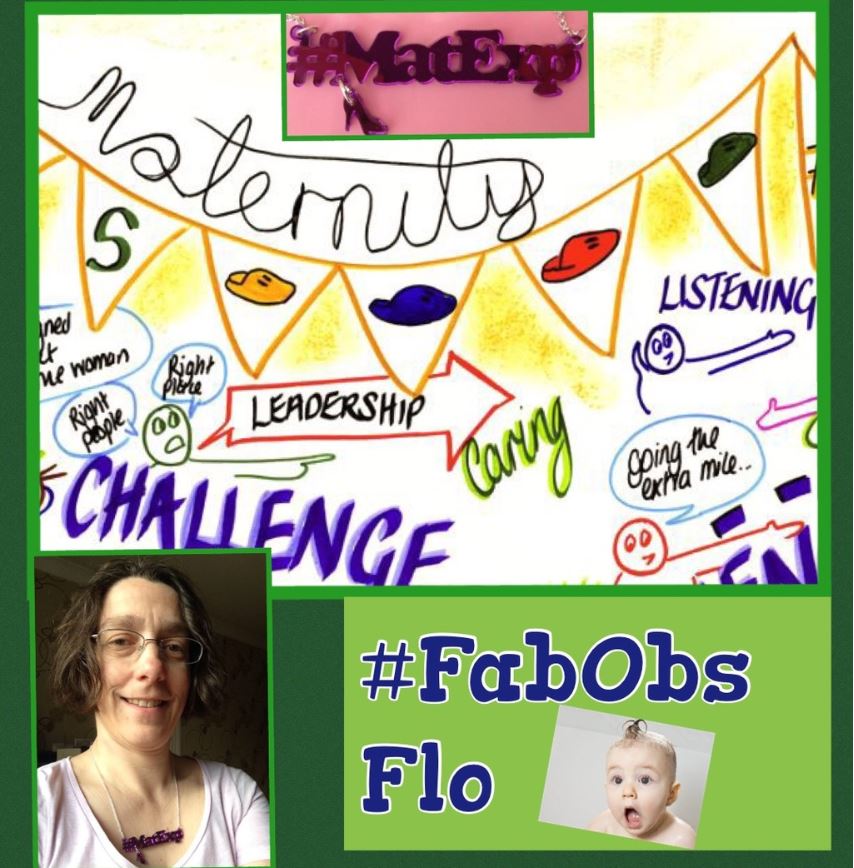A blog post from #MatExp co-founder Florence Wilcock
When I started thinking about women’s experience of maternity care five years ago, some of my colleagues were rather dubious; ‘safety first’ was their view: why would I bother about the ‘fluff’ of personalisation? Experience can sometimes be seen as a midwifery issue rather than relevant to doctors. I wrote a blog to try and dispel this idea https://matexp.org.uk/birth-trauma/safety-experience-or-both/ .
In contrast, I have had wonderful support from RCOG, almost from the beginning first meeting with then President David Richmond in 2015.
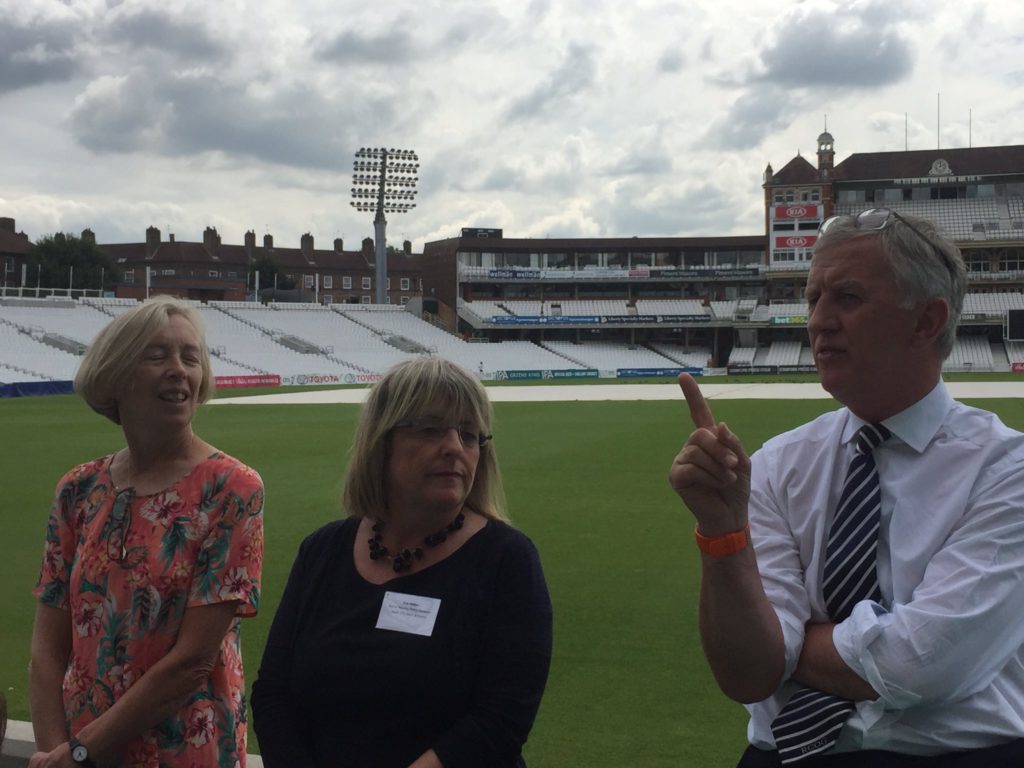
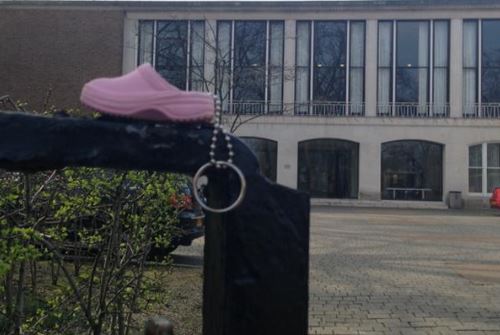
RCOG firmly believe in the ethos of working with women collaboratively and making sure women’s views are front and centre of everything we do in the profession. Despite this I have worried that the O&G doctors who attend our workshops or hear me speak are those that already practice in this way, ‘preaching to the converted’ one might say. I have wondered how to bring #MatExp and co production to a wider audience and start to influence our more sceptical colleagues. I have long thought the best way would be to get on the agenda of one of the RCOG mandatory training courses.
The annual ‘Management of the Labour ward’ course seemed like a great starting point so with the help of Louise Page, BICS president and Alison Wright & Kate Brian of RCOG women’s network, I managed to get agreement to run a Whose Shoes co-production session one evening in May. All the best #MatExp sessions are collaborative, so I drafted in a few friends from National Maternity Voices as well as fellow obstetric consultants who are actively using co production.
It was also brilliant to be joined by Nicola from Positive About Down Syndrome (PADS.) My aims were very simple, I wanted to give people a taste of co-production, challenge their assumptions and encourage them to link with their Maternity Voices Partnership or other parents’ groups and take the idea of co-production back to their workplace. I gave a brief introduction and invited people to play Whose Shoes, facilitated by my willing volunteers.
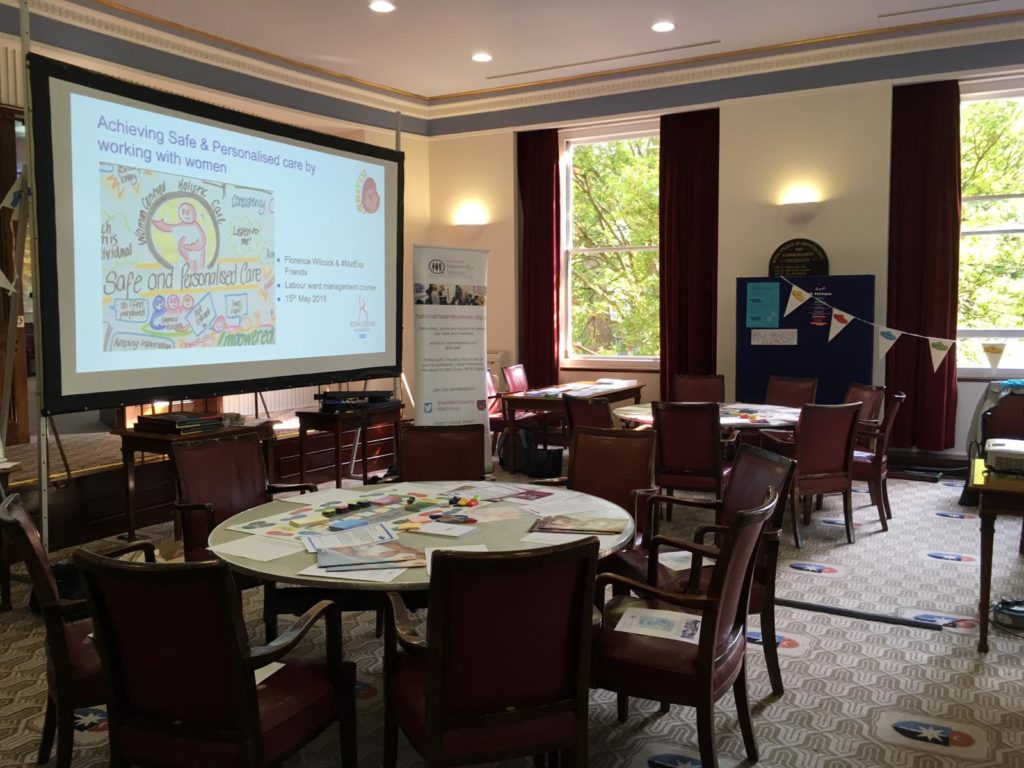
Running as an additional session at the end of a long day, it wasn’t surprising that we had a relatively small number attend our session, with 24 completing feedback forms. The feedback we had was incredibly positive.
Not only did 75% of attendees say the session had impacted on the way they will work with women and families in the future but in addition the majority of attendees had no previous experience of co-production so we definitely reached a new audience.
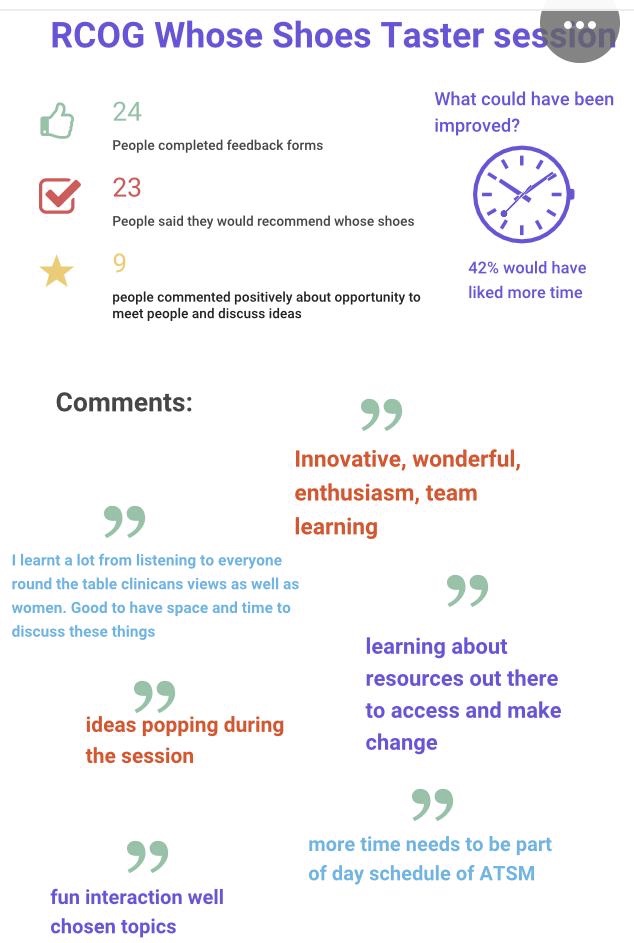
I am really hoping that the success of the session means that this is just the start. The new curriculum seems like a brilliant opportunity with much more focus on the softer skills of communication and treating women holistically rather than seeing them as a medical condition or operative procedures to tick off in a log book.
RCOG world congress in June again demonstrated firm commitment from the college with lived experience being threaded through the three-day programme, culminating in a co-produced presentation by Emma Crookes (RCOG women’s network) and myself on the final day. You can view it here:
RCOG World Congress from Whose Shoes?
I have recently joined RCOG women’s network as a clinical representative and have been delighted to see the depth and breadth of their work. Women’s voices have become well embedded throughout RCOG work everything from guidelines to workforce, examinations and genomics. With their help I am hoping this heralds a new era with co-production, personalisation and informed choice central to the care we provide.
Exciting times!
Florence’s article about #MatExp Whose Shoes? in the RCOG magazine, November, 2015.
